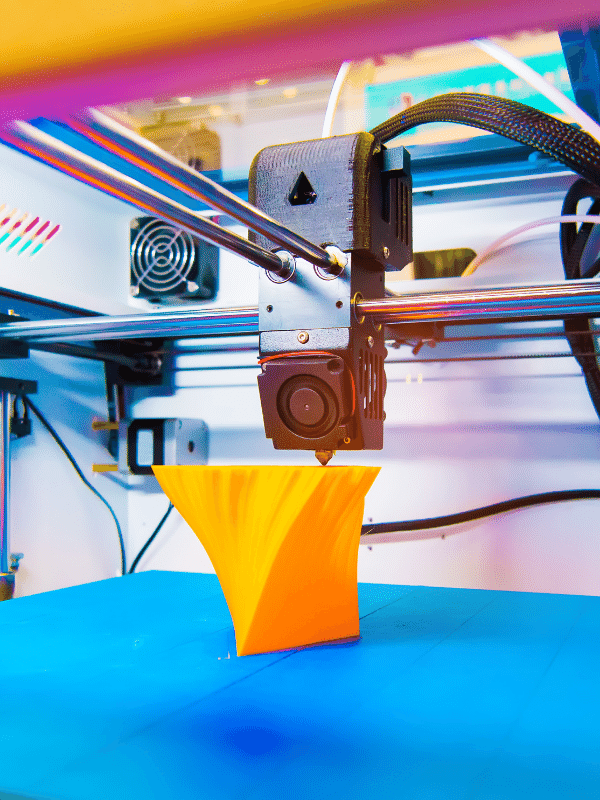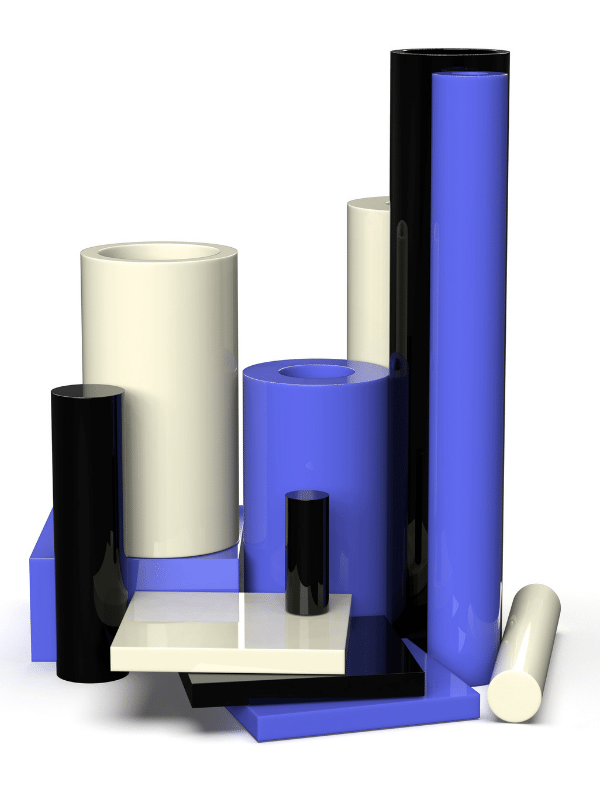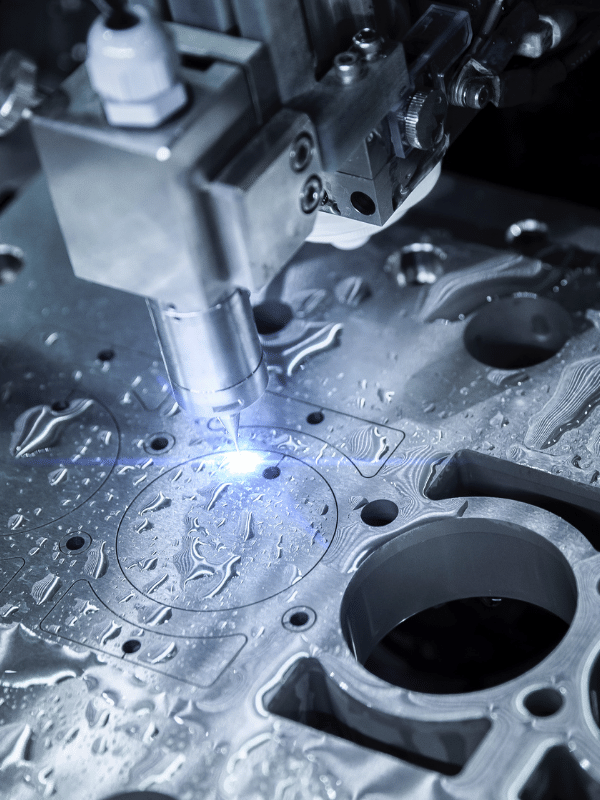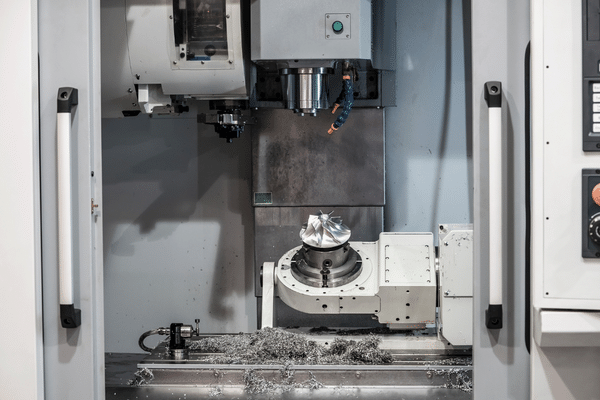CNC Machining Nylon
ETCN has a strong R&D team and a standard manufacturing process. CNC machinings all kinds of hard and soft materials, such as steel, Stainless steel, Brass, Bronze, Aluminum, Zinc alloy, Copper, Nylon, ABS, and more than
Home » CNC Machining Nylon
Nylon Machining Service & Nylon Machined Parts
♦ Nylon is a family of synthetic polymers that can be made into fibers, films, or molded materials. Nylon is also known for its strength, elasticity, and durability. With our nylon machining services, you can make your custom parts from various nylon materials.
♦ Nylon machining service is a process that can be used to make nylon parts. Nylon is a material that has many uses, and it is often used in the production of products that need to be light, flexible, and durable. It also makes cables, bearings, gears, gaskets, and other products. Nylon machining service provides the ability to make nylon parts required for many applications.
♦ A variety of products can be made from nylon, such as gears, bearings, bushings, screws, shafts, and other components.
♦ Nylon has many advantages over other materials, such as low cost, corrosion resistance, strength, and stiffness.
♦ In addition to these advantages, it has some disadvantages, such as brittleness and poor thermal conductivity.


Benefits of Nylon Materials
Nylon materials are a group of synthetic polymers with high strength, toughness, elasticity, and dimensional stability. They can be used in various industries such as packaging, transportation, medical care, and construction.
Benefits of Nylon Materials
♦ High strength: Nylon materials have high tensile strength, making them durable and long-lasting.
♦ Toughness: Nylon materials are flexible and can withstand heavy loads without breaking easily.
♦ Elasticity: Nylon materials have exceptional elastic recovery properties allowing them to return to their original shape after being stretched or compressed.
♦ Dimensional stability: The high molecular weight of nylon materials gives them excellent dimensional stability allowing them to maintain their size and shape over time even under extreme conditions such as high temperatures and pressure.
Precision CNC Machined Nylon Parts Manufacture From China
Nylon CNC Machining Services in Brief:
- 1. Material: Nylon,POM,PA66,PA6,PA
- 2. Surface treatment: anodizing, electrophoresis, and powder coating
- 3. Surface finish: Ra0.1-Ra0.5μm
- 4. Mold base: Aluminum Mold Base (Aluminum Alloy), Steel Mold Base (Stainless Steel), Plastic Mold Base (PTFE/PEEK)
- 5. Precision Grade: P0, P1, P4, P6, etc
- 6. Size range: Customized size range is available according to your drawings or samples
Advantages of ETCN Nylon CNC Machining Services:
- 1. Quality assurance: We have established a strict quality control system to guarantee the quality of our products.
- 2. Delivery time: We can finish our goods within 15 days after receiving your payment, but it also depends on your quantity and other factors.
- 3. Price advantage: We have many years of experience exporting goods to Europe and America, so we know how to control cost-effectively, which will lead to a low price for you.
- 4. Professional service: We are a professional manufacturer with more than 20 years of experience in CNC machining parts, molding parts, etc.; we can offer you professional service in sample making and production planning, etc.


Main CNC Machining Nylon Parts
ETCN is experienced in producing nylon components, including bushings, bearings, gears, housings, nuts, and screws. It also produces turbine blades and impellers; crankshafts; instrument panels, drive shafts and valve stems; blades; screw rods; sealing rings; shuttles; sleeves; shaft sleeve connectors; transmission structure parts; household electrical parts; automobile manufacturing parts. The company has also produced chemical mechanical parts, food processing machinery components, and more.
Professional Guide: Nylon Machined Parts
How Nylon Plastic is Machined
Nylon parts are typically machined using double-sided tools or one of the following techniques:
Manual milling: This technique involves manually positioning the cutting tool relative to the workpiece using hand-held controls while manually moving the piece along a straight line or circular path. Manual milling is commonly used to machine flat surfaces or simple shapes that do not require complex tool paths.
CNC milling: This technique uses computer-controlled machinery to perform intricate cuts across large parts at high speeds. CNC milling machines typically have multiple axes that allow them to move in three dimensions while performing complex cuts across multiple surfaces at once.
Nylon Machining Capabilities
Nylon Machining Capabilities
Tensile Material Strength: 100-150,000 PSI
Tensile Modulus of Elasticity: 1,900-2,200,000 PSI
Flexural Material Strength: 100-130,000 PSI
Flexural Modulus of Elasticity: 1,600-1,800,000 PSI
Flexural Yield Strength: 50-60,000 PSI
Machining Methods of Nylon Parts
manufacture nylon parts. The most common methods include:
- Lathe Machining
- CNC Lathe Machining
- CNC Turning
- CNC Milling
- RPM Lathe Machining
- RPM Turning
- RPM Milling
Tolerances of CNC Machined Nylon Parts
The tolerances provided for CNC machined nylon parts are:
- Parting Line Tolerance: ±0.002″ (0.0508mm)
- Reference Surface Tolerance: ±0.002″ (0.0508mm)
- Seat Tolerance: ±0.002″ (0.0508mm)
- Bore Tolerance: ±0.004″ (0.1016mm)
- Shaft Bore Tolerance: 0-10 RMS, 0-20 max RMS (metric shafts only)
Surface Finish of CNC Machined Nylon Parts
There are two main types of surface finishes for CNC machined nylon parts:
Anodizing is the process of applying an oxide layer to a metal part. This layer serves as a protective barrier against corrosion, wear, and abrasion. The anodizing process can also be used to change the color of the surface of a part. Anodized finishes typically have a matte appearance, but they can be also be polished to a high gloss.
Heat treatment is another way to increase the strength and hardness of a material like nylon. There are many different heat treatments available including flame hardening and case hardening. Flame hardening involves exposing the nylon part to extremely high temperatures in an open flame such as acetylene torch or oxyacetylene torch until it reaches its peak temperature range which is around 300–500 degrees Celsius (572–932 degrees Fahrenheit). Case hardening involves exposing the nylon part to extreme temperatures in an enclosed furnace at around 1000 degrees Celsius (1832 degrees Fahrenheit) for about two hours followed by quenching it in water or oil within 2 minutes of removing it from the furnace.
Request a Quote
Do you need a quote for your high-precision part? Contact us now by phone, email, or through our contact form.